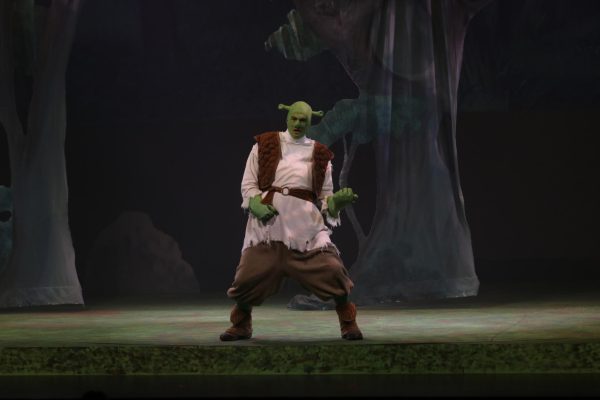Film/Series Review Written or Directed by People of Color: Part 2
The following is the second part of reviewing media by POC directors
Rest assured folks, I’m back for my final film review.
If you have not read the previous part of my media review, I strongly encourage you to take a look at it here.
In my last review, I discussed my intention behind reviewing films written/directed by underrepresented minorities and the importance of diversifying the media that we consume. I want to make it clear that these reviews are not the end-all-be-all of diversity, and that I recognize that there are many more cinematic examples that exist beyond the ones listed here.
I had mentioned using the app Letterboxd for the first time in our previous movie review. Naturally, it goes without saying that I have a lot more experience reviewing movies for my faithful three subscribers. Throughout the span of these three months (post Letterboxd download), I’ve delved deep into Wong-Kar Wai’s cinematic universe and consumed other forms of recent media.

BEEF (2023)
RATING: TV-MA
When this series first started gaining traction on Netflix, I immediately knew that it would be included in this film review.
The series follows Danny Cho (Steven Yeun) and Amy Lau (Ali Wong) who are pitted against each other after a road rage incident. Both the story and characters tend to become intertwined and the characters’ true impulses come to fruition after the incident. Danny Cho, a failed contractor, and Amy Lau, an unfulfilled artist, see the worst of themselves projected onto the other person.
This series was exceptionally enticing and, interestingly, sustained a clear focus on the inner lives of Cho and Lau. By focusing mainly on the lives of the primary characters, BEEF (2023) was able to hone in on its themes of loneliness and impulse in an effective way. In particular, I appreciated that BEEF (2023) was made into a series instead of a long-winded film, as it allowed viewers time to process the progression of the storyline.
However, the charm of BEEF (2023) lies in its attention to minute details and its unapologetic adherence to the “unlikeable main character(s)” trope. For instance, each episode is given an abnormally long, poetic title. The first episode is titled, “The Birds Don’t Sing, They Screech in Pain” and the next, “The Rapture of Being Alive.” While the names of the titles are not explicitly referenced in each of its respective episodes, the creative titles are on-brand to A24’s creative style.
As the feud between Lau and Cho grows in intensity, it is difficult for viewers to identify a true “villain.” Both characters assume the role of the villain at some point in the series.
While it is difficult to review the complexities of this film without giving away too much, I strongly encourage everybody to watch this series at least once.
Fallen Angels (1995)
In fear of sounding like a pretentious “film bro,” I’ve tended to stay away from reviewing Wong-Kar Wai’s films. After all, what could I possibly say that has not already been said about Wong Kar-Wai?
But now, I’ve realized the importance of giving credit where credit is due and well, Wai’s films most definitely deserve credit.
Located in Hong Kong’s urban centers, following the intertwined story of a hitman who wishes to leave his past as a criminal behind, an escort he begins a relationship with, and an agent who is love-struck by him. The other story follows a mute ex-convict who is actively trying to escape the police.
After being told that the movie “Everything Everywhere All at Once” draws inspiration from Wong-Kar Wai’s films, I knew that I had to witness the source of one of my favorite films for myself. Like BEEF (2023), Fallen Angels (1995) addresses similar themes of loneliness and disconnection. Melancholy overtakes a majority of the scenes; even those that are intended to be romantic.
At his time, many criticized Kar-Wai for his ostentatious visuals and unconventional storyline. But now, it has served as a source of visual and aesthetic inspiration for its successors of drama and action-packed movies.
While Kar-wai’s films may be an acquired taste, the content of his films cannot be extracted from the visuals. Tinted with a blue haze and surrealistic visuals, Kar-Wai places as much emphasis on aesthetics and decadence as he does on a jam-packed, content filled storyline.
I advise viewers to read about this film before viewing, as its contents can be triggering for some.
Your donation will support the student journalists of Woodbridge High School. Your contribution will allow us to purchase equipment and cover our annual website hosting costs.

Hello! My name is Manasaa Meenakshi and I'll be this year's Opinion Editor. I've been a part of our journalism program for two years, this being my third...

Hi Warriors! I'm Lena and I am very excited to be a member of the Golden Arrow as an illustrator! I hope to contribute to our publication through illustrations...








